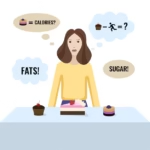Unfortunate habits are ways of behaving that, while minor temporarily, can have pessimistic results on your physical, mental, or profound well-being when rehashed over the long haul. These habits can go from reveling in unhealthy food or hesitating on significant undertakings to additional difficult issues like smoking or extreme screen time. Bringing an end to these habits frequently feels overwhelming because they are profoundly imbued in our daily schedules and give a feeling of solace or prize. However, identifying their triggers and executing intentional methodologies can prompt enduring change and better general prosperity. Identify and Break Unhealthy Habits
Getting out of unhealthy habits includes more than self-discipline — it requires deliberate procedures and a strong climate. Begin by supplanting habits with positive ones that line up with your goals. For instance, if you need to decrease screen time, lay out an everyday cutoff and supplant it with exercises like perusing or exercise. Setting little, feasible objectives and praising advancement can keep you persuaded. Also, encircling yourself with strong individuals and utilizing apparatuses like propensity trackers can assist with supporting new ways of behaving and supporting long-haul change.
Recognizing Unhealthy Habits
The most important phase in ending Unhealthy habits is recognizing that they exist. Numerous ways of behaving become so programmed that we may not understand we’re participating in them. For instance, carelessly looking at web-based entertainment before bed or nibbling when not eager are activities that might slip through the cracks but can disturb rest or lead to weight gain over the long run. Focusing on designs and identifying behaviors that adversely influence your health, relationships, or productivity is pivotal.
Considering your everyday schedule can assist with revealing habits that need consideration.
Ask yourself:
Is this conduct assisting me with accomplishing my goals?
Does this propensity line up with my qualities or needs?
Am I utilizing this propensity to keep away from distress or stress?
By being straightforward with yourself, you can pinpoint the habits that are keeping you down and begin the excursion toward change.
Understanding Triggers and Root Causes
Unfortunate habits are frequently associated with explicit triggers, like close-to-home states, conditions, or schedules. For example, stress could prompt gorging, fatigue could incite exorbitant television watching, or social circumstances could energize smoking. Understanding these triggers is vital to ending the cycle since habits often react to neglected needs or profound prompts.
Observe when and where you take part in Unhealthy Habits. For instance:
Do you go after low-quality food while you’re feeling worried or overpowered?
Do you tarry on assignments since you’re anxious about disappointment or vulnerability?
Is it true or not that you are going through hours on your telephone to get away from fatigue?
Keeping a diary to follow these examples can help you identify what sets off your habits and give you insight into their hidden causes. This mindfulness permits you to address the root of your behavior rather than only its superficial articulation.
The Psychology of Habits
Habits are shaped through a cycle known as the propensity circle, which comprises three components:
Cue: A trigger that starts the way of behaving.
Routine: The actual conduct.
Reward: The fulfillment or alleviation acquired from the way of behaving.
For instance, if you eat a sweet bite (schedule) each evening while feeling tired (prompt) since it gives a brief jolt of energy (reward), this circle supports the propensity over the long haul. Getting out from under an unfortunate propensity requires interfering with this circle by changing the signal, adjusting the daily schedule, or tracking down a better prize. This understanding structures the establishment for making significant change.
Strategies to Break Unhealthy Habits
Ending a propensity isn’t about self-discipline alone — it requires an organized methodology. Here are a few powerful techniques:
Supplant the Habit with a Positive Option As opposed to just attempting to kill a propensity, track down a better way of behaving to have its spot. For instance:
When you hanker for a mid-evening treat, swap sugary snacks for natural products or nuts. Supplant extreme screen time with perusing, journaling, or an open-air movement. Use pressure alleviation procedures like profound breathing or reflection instead of smoking.
Supplanting a habit guarantees that the fundamental need is as yet met, lessening the probability of falling once more into old examples.
Begin Little Attempting to get out from under a propensity short-term can be overpowering and impractical. All things being equal, center around little, reasonable advances. For instance, to lessen caffeine consumption, begin by supplanting one mug of espresso daily with natural tea. Progressive changes permit your body and mind to change, expanding the possibilities of long-haul achievement.
Put forth Unambiguous goals Ambiguous expectations like “I need to be better” are less compelling than clear, noteworthy goals. All things being equal, say, “I will stroll for 30 minutes after work consistently.” Explicit goals give guidance and make it simpler to follow headway.
Limit Openness to Triggers Assuming that specific conditions or circumstances support undesirable habits, attempt to keep away from them or change them. For example, assuming you will generally nibble late around evening time, keep low-quality food out of your home, and stock better choices all things considered. By diminishing openness to triggers, you can upset the propensity circle.
Practical Examples for Breaking Habits (20% Listing)
Procrastination:
Recognize the most difficult errand of the day and complete it first.
Utilize the Pomodoro Procedure to keep on track in short explodes.
Break enormous assignments into more modest, sensible advances.
Unhealthy Eating:
Get ready for feasts ahead of time to try not to depend on inexpensive food.
Keep sound bites, similar to foods grown from the ground, reachable.
Limit eating out and decide on home-prepared feasts.
Extreme Screen Time:
Set a timer to limit usage and take regular breaks.
Lay out without screen zones, similar to the eating table or room.
Supplant looking with exercises like perusing or working out.
The Job of Attitude in Bringing an end to habits
Your outlook assumes a basic part in beating undesirable habits. A development outlook — the conviction that you can improve with exertion and learning — can have a significant effect. Rather than zeroing in on mishaps, view them as any open doors to learn and change your methodology. Self-empathy is similarly significant. Excuse yourself for mistakes and recollect that advancement, not flawlessness is a definitive objective.
Improving habits is a slow cycle that requires diligence. It’s critical to celebrate little triumphs, as they gather speed and build up your obligation to change. Whether it’s finishing seven days without enjoying a persistent vice or effectively supplanting it with a better option, recognizing your accomplishments keeps you propelled.
Building a Support System
Having an emotional support system can make ending unfortunate habits more straightforward. Offering your goals to companions, family, or a tutor makes you responsible and gives consolation when you face difficulties. Assuming that your propensity is especially challenging to break, think about looking for proficient assistance. Specialists or mentors can offer fitted methodologies and bits of knowledge to help your excursion.
Furthermore, encircling yourself with similar people who share comparative health or self-improvement goals can unquestionably inspire. For example, joining a wellness bunch or taking part in health difficulties can encourage a feeling of local area and mutual perspective.
Long-Term Maintenance of Positive Habits

When you’ve effectively ended an undesirable propensity, keeping up with the positive changes is fundamental. Consistency and redundancy are vital to shaping enduring habits. Integrate the new way of behaving into your day-to-day everyday practice, making it as programmed as the propensity you supplanted. For instance, in the event that you’ve supplanted late-evening nibbling with some natural tea, make this a piece of your night wind-down custom.
It’s likewise useful to intermittently audit your advancement and rethink your goals. Life conditions change, and your habits might have to appropriately advance. Remaining aware of your habits guarantees that you stay lined up with your qualities and needs over the long run.
At long last, keeping up with positive habits includes developing a mentality of development and strength. Comprehend that mishaps are regular and ought to be seen as open doors to learning and change, not as disappointments. Encircling yourself with steady individuals who share or energize your objectives can fortify your responsibility and give a feeling of the local area. Over the long run, these habits won’t just become imbued in your way of life yet in addition act as an establishment for future achievement and self-awareness, making a far-reaching influence of energy in different parts of your life.
Conclusion
Undesirable habits don’t need to characterize your life. By distinguishing these ways of behaving, grasping their triggers, and executing intentional systems, you can take control and make a better, really satisfying way of life. Bringing an end to habits isn’t tied in with accomplishing flawlessness however about putting forth reliable attempts to improve and adjust your activities to your goals.
The excursion to change requires persistence, versatility, and an eagerness to gain from difficulties. With mindfulness, a strong climate, and a promise to self-improvement, you can supplant negative examples with habits that engage and inspire you. Venturing out today can show you the way to enduring change and superior personal satisfaction.


